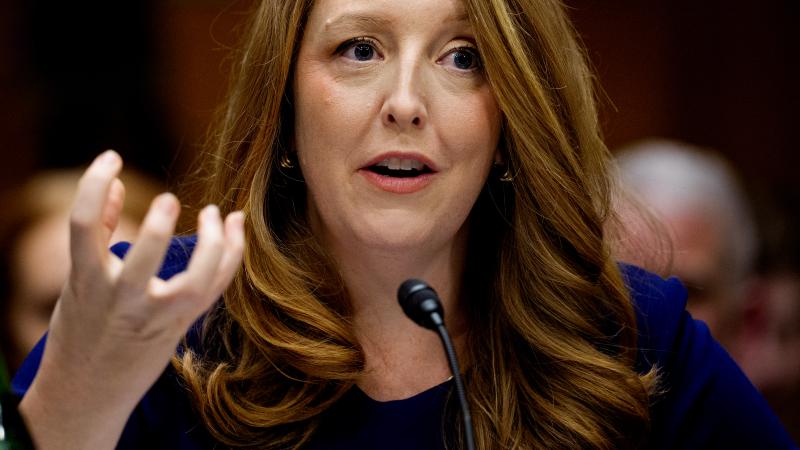GOP congressman promotes 'popular' bill to block Biden's student loan relief
"It's just not the right time with inflation through the roof," Rep. Scott DesJarlais said.
Rep. Scott DesJarlais (R-Tenn.) criticized President Joe Biden's proposed plan to relieve student loan debt, saying that his own new Congressional bill to block the policy is "gonna be pretty popular."
DesJarlais told the John Solomon Reports podcast that many of his constituents are not in favor of Biden canceling student-loan debt.
"The general consensus is that, 'Hey, you know, we paid back our debts. We took that responsibility. Yeah, it was hard, it was painful, but we did the right thing.' And now Biden, in what looks to be an attempt to curry favor among the young voters, is talking about canceling $10,000 per student, maybe $50,000, if you listen to [Chuck] Schumer and Elizabeth Warren and others," DesJarlais said.
"And you know we have $1.6 trillion in debt right now — in student loan debt — back onto our $30 trillion in U.S. debt."
Biden's proposes to cancel $10,000 in student-loan debt per person for those earning less than $150,000 the prior year, or less than $300,000 for jointly-filing married couples, according to The Washington Post.
DesJarlais also tied relieving student-loan debt to high inflation.
"It's just not the right time, with inflation through the roof. We haven't seen anything like this since the Jimmy Carter era. Gas prices — everyone's feeling it [at the] pumps. So yeah, people are getting a little angry when they're asked for people who knowingly went into debt to get their education, took out these loans, and now they're thinking, 'Well, heck, we'll just let the hard-working taxpayers cover my debt.' And it's not going over very well."
The congressman introduced a bill this week to block Biden's student-loan debt relief.
"I think it's gonna be pretty popular ... I think we'll even see some moderate Democrats show some interest. It's hard to pass a bill when you're not in the majority, and maybe it doesn't get that far. But I do think the response we're getting would give Biden some pause if he's thinking of making a decision that he is hoping will help his popularity and help his poll numbers. and really, I think it's going to have the opposite effect."
The DesJarlais bill limits the Education and Treasury secretaries and attorney general from taking action toward relieving student-loan debt outside of the Higher Education Act of 1965, Fox News reported.
Biden has already relieved $25 billion in student-loan debt, the most recent being the "largest single-loan discharge" in the Department of Education's history, with 560,000 borrowers who attended Corinthian Colleges having their total of $5.6 billion of debt discharged.
House Republicans have asked for an ethics investigation into Biden's proposed student loan debt relief plan, saying the policy "may have been promulgated by White House staffers who stand to financially benefit from the decision, especially considering recent reports that White House political appointees owe millions in student-loan debt," Fox News reported.
House Oversight Committee ranking member Rep. James Comer (R-Ky.) and House Committee on Education and Labor Republican leader Rep. Virginia Foxx (R-N.C.) asked the director of the U.S. Office of Government Ethics, Emory Rounds, to provide assistance in determining if there is a conflict of interest among White House staffers regarding the proposed policy or if their families could benefit from it.
According to a poll released by veterans advocacy group Mission Roll Call last week, 76.6% of U.S. veterans said they were against the idea of student-loan relief for people who didn't serve in the military.
Darrell Owens, a veteran at the America's Warrior Partnership organization, told The Center Square last week, "You're going to add additional recruiting challenges, saying, you know, why would I sign up for the Army and get the G.I. bill to pay for college when you could just go to college by yourself, take out student loans and have them forgiven later when it's politically convenient."















